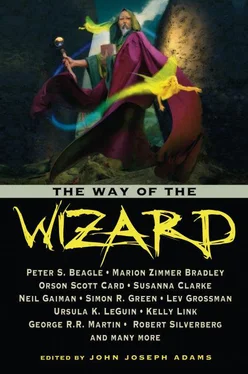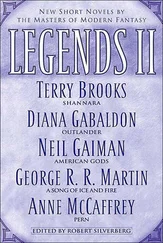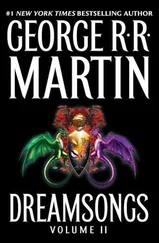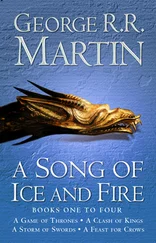“We’ve been over this before,” he said. “Considering the current state of affairs, I’d have to declare a chain of succession down to the apprentice cook. If anyone survives, they can argue over it. My advisors can rule by council until then.”
Biantha bowed her head and watched him leave.
Usually Biantha avoided Evergard’s great hall. It reminded her of her former home, the demon emperor’s palace, though the scents of lavender and lilacs drifted through the air, not the smell of blood; people smiled at her instead of bowing or curtsying rigidly. Musicians played softly while nobles chattered, idle soldiers gambled for pittances, and children scampered in and out, oblivious to the adults’ strained voices. A few of the boys were fair-haired, like herself. Biantha closed her eyes briefly before turning along the walls, partly to avoid thinking about a particular fair-haired boy, partly because she had come to study the tapestries for inspiration.
The tapestries’ colors remained as vibrant as they had been when she first swore fealty to Lord Vathré upon the Blade Fidora. Biantha had long ago determined the logic by which the tapestries had been arranged, and did not concern herself with it now. Instead, she inspected the scenes of the Nightbreak War.
Here was the Battle of Noiren Field, where webs of starlight blinded a thousand soldiers and angular silhouettes soared above, ready for the massacre. Here was General Vian on a blood bay destrier, leading a charge against a phalanx of demons. Here was amber-eyed Lady Chandal weeping over a fallen young man whose closed eyes might also have been amber, flowers springing up where her tears splashed onto the battlefield. Biantha swallowed and quickened her steps. One by one she passed the tapestries until she found what she sought.
Unlike the other Nightbreak tapestries, its border had been woven in rust rather than Evergard’s colors, blue and black: rust for betrayal. She stared at the dispassionate face of Lord Mière, enchanter and traitor to Evergard. His had been a simpler magic than her own, drawing upon ritual and incantation. With it he had almost defeated the Watchlanders; only his daughter’s knife had saved them.
Symmetry, she sighed. The one thing she had pried from the Prophecy was that it possessed a twisted symmetry. It hinted at two wars between the demons’ empire and the Watchlands, and because records of the first war — the Nightbreak War — were scant, Biantha had yet to understood certain cantos, certain equations, that dealt with it. Hours with Evergard’s minstrels and historians hadn’t helped. Other than herself, only Vathré knew that there might be a second traitor among them.
Or that, because they had won the first war, they might lose the second, in a cruel mirroring transformation of history.
“Lady Biantha?”
She turned. “Yes?”
The captain — she did not know his name — bowed slightly. “It isn’t often that we see you down here, my lady.”
Biantha smiled wryly. “A bit too much noise for my work, and on occasion I test spells that might go wrong, sometimes fatally so. My chambers are shielded, but out here… ”
In the demon emperor’s court, her words would have been a veiled threat. Here, the captain nodded thoughtfully and gestured at the tapestry. “I was wondering why you were looking at this. Most people avoid it.”
“I was thinking about the Prophecy,” she said, retracing the intractable equations in her mind. There had to be a way to balance term against term, solve the system and read Evergard’s future, but it continued to escape her. “I’m worried.”
“We all are.”
Biantha paused. “You said ‘most people.’ Does that include yourself?”
His mouth twisted. “No. It’s a useful reminder. Do you ever wish you had stayed at the demon emperor’s palace?”
She read honest curiosity in the captain’s expression, not innuendo. “Never.” She breathed deeply. “I started learning mathemagic there because magicians, even human magicians, are protected unless they do something foolish. Otherwise I would have been a slave or a soldier; I had no wish for the former and no heart, no talent, for the latter.”
Such a small word, foolish , when the penalty it carried had given Biantha nightmares for years. She had seen the demon emperor touch his serpent-eyed scepter to a courtesan’s perfumed shoulder, as if in blessing; had been unable to avert her gaze before she saw the woman’s eyes boiling away and splinters of bone erupting through the rouged skin.
The captain looked down. “I’m sorry to have reminded you, my lady.”
“A useful reminder,” she echoed. “And what does this portrait of Lord Mière remind you of, if I may ask?”
“Honor, and those who lose it,” he said. “Lord Mière was my great-grandfather.”
Biantha blinked and saw that there was, indeed, a resemblance in the structure of his face. Her eyes moved to the tapestry’s rust border. What had driven Mière to betrayal? It occurred to her, not for the first time, that she herself had fled the demon emperor’s court — but the symmetry here seemed incomplete. “Do you think there’s hope for us?” she asked the captain.
He spread his hands, studying Biantha’s face as she had his just a moment before. “There are those of us who say we must have a chance, or you would have returned to the demons.”
She felt herself flush — and then laughed, though that laughter came perilously close to tears. “I have rarely known demons to forgive. Neither have they forgiven Evergard their defeat in the Nightbreak War.”
“More’s the pity,” said the captain, frowning thoughtfully, and took his leave.
For us or the demons? Biantha thought.
Symmetry . The word haunted Biantha through the days and nights as she struggled with the Prophecy. She had wondered, after meeting the captain, if it meant something as simple as her flight from the demons, the fact that one of Lord Mière’s descendants survived here. The ballads said Mière had but a single daughter, named Paienne, but they made no mention of her after she saved the Watchlands.
The secret eluded her, slipped away from her, sent her into dreams where dizzying shifts in perspective finally drove her to awaken. Biantha turned to her tomes, seeking clues in others’ mathemagical speculations; when she tired of that, she memorized her battle spells, bowing to the heartless logic of war. And went back to the tomes, their treasury of axioms and theorems, diagrams and discussions.
She was leafing through Athique’s Transformations when someone imitated thunder on her door. Biantha put down the book and opened the door. “Yes?”
The herald bowed elaborately. “A meeting of the court, my lady. Lord Vathré wishes you to attend.”
“I’ll be there.” Firmly, she shut the door and changed into her formal robes as swiftly as she could. Biantha had attended few court meetings: at first, because Vathré had been uncertain of her loyalties, then because of her awkwardness as a foreigner, and finally because she rarely had anything to contribute to matters of state and found her time better spent working on her magic. That Vathré should summon her now was unusual.
She was right. For once the attendants and servants had been cleared out, and the court had arrayed itself along the sides of the throne room while Vathré and his advisers sat at the head. She took her place between the astrologer and Lady Iastre. The astrologer wore his habitual frown, while the lady’s face was cool and composed, revealing nothing. Biantha knew better, after playing draughts or rithmomachia against Iastre once a week in less hectic times: Iastre’s face only went blank when she anticipated trouble.
Читать дальше












